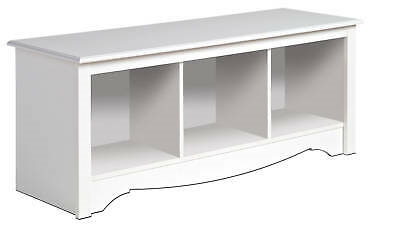Any extraneous sounds in the throat during breathing require careful consideration and appropriate treatment. Wheezing in the throat of an adult occurs when an obstacle has arisen in the path of the air flow. For example, wheezing appears when the mucous membrane swells, sputum accumulates in the bronchi, a foreign object gets into the throat, etc. In parallel, other noises may occur, for example, whistling.
 Such noises are clearly audible when listening to the lungs with a stethoscope, however, in some cases, the patient can hear wheezing without additional devices. If the breathing is so noisy that whistles and wheezing are heard by others, the term "stridor" is used.
Such noises are clearly audible when listening to the lungs with a stethoscope, however, in some cases, the patient can hear wheezing without additional devices. If the breathing is so noisy that whistles and wheezing are heard by others, the term "stridor" is used.
Hoarseness is a slightly different condition; it occurs when inflammation of the vocal cords, which can be caused by various diseases of the larynx.
For what reasons can the throat become hoarse? How to quickly restore voice and normal breathing? We will answer these and other similar questions.
Why is the throat hoarse?
Hoarseness is always associated with a malfunction of the vocal cords. The vocal cords are two muscle groups that vibrate and produce sounds. They are located in the larynx - the section of the respiratory tract that connects the pharynx and trachea. If the larynx is inflamed, the vibration of the vocal cords is disrupted and the person's voice becomes low and hoarse.
The main cause of hoarseness is acute laryngitis, which, in turn, is usually caused by viruses of the ARVI group. Also, laryngitis can be a consequence of physical overstrain of the vocal cords.
Like all muscles, the vocal cords get tired from physical exertion - singing, loud, prolonged screaming, etc.
Much less often, laryngitis has other causes, such as:
- benign neoplasms of the larynx (cyst or polyp);
- gastroesophageal reflux - food from the stomach into the esophagus and pharynx;
- an allergic reaction to dust, pollen, wool, chemicals in the air;
- smoking;
- thyroid problems
- mechanical and thermal injuries of the larynx;
- laryngeal cancer.
Hoarseness treatment
How is a hoarse throat treated? First, it all depends on the cause of the disease. It is logical that one thing is good for the treatment of viral laryngitis, and another is good for reflux.
However, there is one tip that is helpful for hoarseness anyway - talk less.
How to treat a throat if it is hoarse as a result of SARS? Acute viral laryngitis is successfully treated at home. To do this, it is necessary to adjust the daily routine, nutrition, and also carry out some therapeutic measures. So, with laryngitis, rinsing with salted water is very useful. After rinsing, it is recommended to spray the throat with a spray. Many throat sprays ("Orasept", "Septolete", etc.) work in several directions at once - they inhibit the reproduction of microorganisms, reduce inflammation and relieve sore throat. Antiseptic lozenges for resorption ("Faringosept", "Lizobakt" and others) have a similar effect.
For laryngitis, it is recommended to drink plenty of water - warm tea, fruit drink, as well as mineral water (preferably without gas).
Steam inhalation works well for many people. If you are sure that you are not prone to hypersensitivity reactions, pour boiling water over dry eucalyptus leaves, chamomile, pine buds, and after the liquid has cooled down to 60-50C, start inhaling. A simpler and safer remedy is alkaline mineral water (for example, Borjomi), or ordinary purified water with the addition of a small amount of soda.
Traditional medicine methods based on the use of pulp and juice of lemon, aloe, ginger do not contribute to the recovery of laryngitis. The fruit acids they contain irritate an already sore throat.
It is recommended to observe the following rules when treating inflammation of the larynx:
- During treatment, it is necessary to eat high-calorie, but easily digestible food (mashed potatoes, soups, boiled or stewed vegetables, poultry and fish).
- Avoid food that is too hot and cold for a few days, spices, seasonings, carbonated drinks and other foods that irritate the mucous membranes.
- Keep your throat warm! Wear a warm scarf or turtleneck sweater. You can also use a warming compress on your neck, but don't overdo it - the delicate skin of your neck can easily burn. For a compress, you can use warm mashed potatoes, honey, gauze soaked in vodka. Cover your skin with cling film before applying the warm mixture. Avoid the thyroid area - it is not recommended to warm it up.
- Treatment for laryngitis is incompatible with smoking and drinking alcohol.
In the vast majority of cases, antibiotics for laryngitis do not need to be taken.
However, if the presence of a bacterial infection in the larynx is confirmed by laboratory tests, antibiotics should not be avoided. It is better to cure the infection quickly and permanently than then to treat the complications of laryngitis, which has flowed into a chronic form.
If within 5-7 days of home treatment the voice has not recovered, other causes of the disease should be considered - allergies, reflux, etc. You should not experiment, taking medications for all possible causes of inflammation of the ligaments - start with an examination of the larynx by an otolaryngologist.
Wheezing when breathing - what to treat?
Several common pathologies can be distinguished, which are characterized by the occurrence of wheezing and other noises in the throat during breathing:
- bronchial asthma is a disease characterized by the appearance of attacks of severe shortness of breath;
- acute bronchitis, pneumonia and other inflammations of the bronchopulmonary tree;
- allergic reactions;
If an allergic patient develops symptoms of shortness of breath, call an ambulance immediately - the reaction to contact with the allergen can be very strong, which can ultimately lead to suffocation.
- bronchiectasis (accumulation of excess mucus in the bronchi and bronchioles);
- croup - severe swelling of the larynx, which can be observed with diphtheria, whooping cough, parainfluenza, less often the flu;
- chronic obstructive pulmonary disease - a progressive disease resulting from prolonged exposure to toxins (cigarette smoke, chemical fumes) on the respiratory tract;
- swelling in the chest or throat;
- getting into the respiratory tract of a foreign object;
- inflammation of the epiglottis;
- heart failure (in this case, the patient is worried about shortness of breath, edema, fatigue, etc.).

Extraneous sounds in the throat when breathing can be a symptom of serious diseases, so do not experiment with self-medication - it is better to consult a doctor.
Wheezing treatment
Complex therapy for wheezing in the throat during breathing can include several directions that enhance the effect of each other:
- The first and most important thing is the treatment of the underlying disease. This area includes taking antibiotics for bronchitis and pneumonia, removing tumors and polyps, taking anti-allergenic drugs, etc. This eliminates the root cause of wheezing. It is possible to get rid of wheezing during breathing forever only if the underlying disease is cured. The rest of the areas listed below play the role of adjuvant therapy.
- Mucolytic drugs are often prescribed if viscous sputum is present in the patient's bronchi. Mucolytics thin it, making it easier to cough up.Syrups and tablets "Bromhexin", "Lazolvan" and others are often used.
- Expectorant drugs are often used along with mucolytics. Most expectorants contain extracts of medicinal plants (thermopsis, anise, plantain, ivy, thyme, etc.), which stimulate the movement of the cilia of the epithelium of the respiratory tract. This pushes the sputum up the respiratory tract. Plant extracts that have an expectorant effect are part of many cough syrups (Gerbion, Gedelix, Bronchikum, etc.). You can also use decoctions of plants (for example, purchase a ready-made mixture "Breast collection").
- Bronchodilators act on smooth muscles by expanding the lumen of the respiratory tract. They are prescribed to patients in whom wheezing and stridor are caused by bronchospasm (for example, with bronchial asthma).
There are many reasons for the appearance of breathing noises, and therefore there is no universal method of treatment that can relieve the patient from wheezing. In each case, an individual approach is required.



